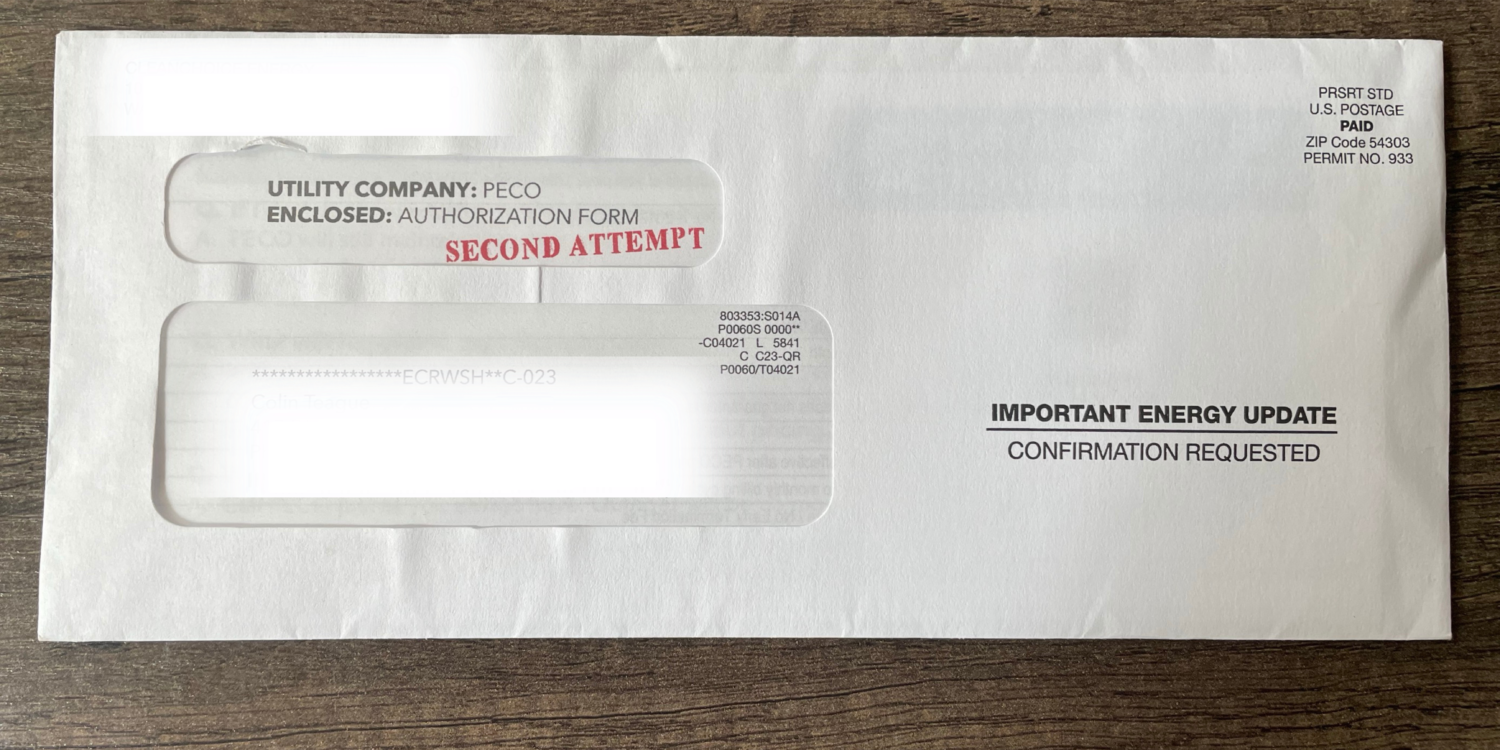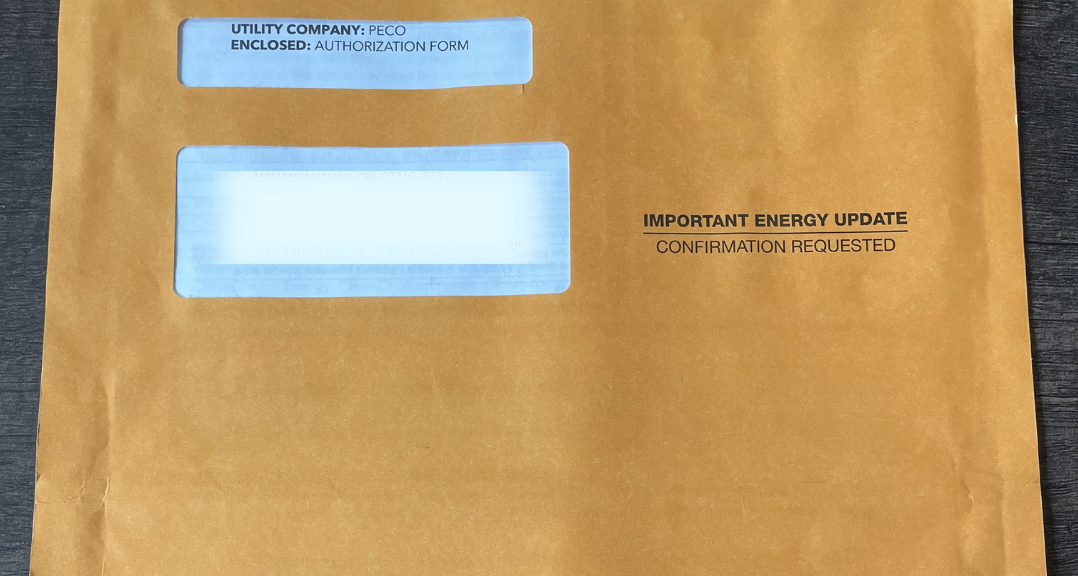
By Lauren Keller – 10/17/2024
Slamming: What to Look for and How to Protect Yourself
In a deregulated state like Pennsylvania, the quality of energy suppliers can vary widely. Unsavory suppliers find ways to use predatory tactics to enroll customers, often without their knowledge or informed consent. One such tactic, called “slamming”, is the unauthorized switching of a customer’s energy generation supplier. Slamming is a fraudulent practice that often leads to unexpected financial burdens and supply service disruptions. To help you navigate this issue, we’ll explore how slamming happens, what the repercussions can look like, and what you can do to protect yourself.
How Does Slamming Occur?
Slamming involves the illegal practice of switching a customer’s energy provider without their knowledge or permission. This can occur through deceptive sales tactics that trick consumers into signing up for a different energy supplier. Consumers then find themselves unintentionally enrolled with a new company for their energy supply, often with higher rates, unfavorable terms, or misaligned supply quality. Suppliers that engage in slamming do so in a number of ways. Some of the most deceptive practices involve supplier representatives posing as employees of utility companies, a customer’s current supplier, or a trusted third party. These representatives may call or show up at your door and pretend to be acting on behalf of the relevant party.
One of our own commercial members recently reported they were a victim of slamming and detailed how it occurred. Shortly after receiving a notification that their renewable electricity supply from The Energy Co-op had ended, the business owner informed us their service was incorrectly canceled, as they had not requested to end their service. According to a business representative, the supplier contacted the business claiming that the business was required to switch to the supplier and tried intimidating the business representative into authorizing the supplier switch. The supplier went so far as to lie that the business would still be receiving their energy supply from The Energy Co-op and claimed that The Energy Co-op was aware of this change. These blatantly deceptive and aggressive tactics resulted in the business authorizing the supplier to sign the business up for services they did not want.
Some suppliers will send mail appearing to be a utility bill or an urgent notice about your energy bill. This fraudulent mail is intended to alarm the customer about their energy bill and subsequently cause the customer to make hasty decisions about signing or confirming information contained in the document. In reality, the customer is inadvertently agreeing to sign up for the disguised supplier’s service.
Below are some examples of physical mail with several misleading features. Suppliers sometimes disguise mail marketing as unpaid energy bills to catch customers’ attention, and trick them into providing account information and signing up. This use of paper mail to slam consumers is dishonest, warning recipients in red, all-capped letters of a “second attempt” made to contact them, much like how a utility company may warn of an overdue payment. In other examples, mail marketing can include the use of fake tracking numbers and the utility company’s name in a prominent location to overstate the mail’s validity, overshadow the supplier’s name, and hide the true source.



Another common tactic involves targeting attendees at local community events. While not necessarily slamming, supplier representatives use high-pressure, aggressive sales techniques or offer appealing energy rate deals to convince customers to switch their supplier only to find out later that their rates spike shortly after signing up. To top it all off, in many cases, customers end up agreeing to terms verbally, making it difficult for the customer to verify what they have committed to or make changes or hold anyone responsible for any wrongdoing.
Slammers often exploit the complexity of energy contracts. They may use jargon or convoluted terms to confuse customers, making it easier for them to slip predatory terms through the cracks. Once the switch is made, the customer may only realize the change when they receive a higher bill or notice discrepancies in their service terms.
The Impact of Slamming
Slamming impacts energy consumers and the industry at large. Consumers who fall victim to slamming can end up with introductory rates that, upon expiration, may cause unexpected increases in energy bills due to higher rates from the new provider. In other cases, customers get locked into a fixed rate contract with cancellation fees making it difficult to leave and often forcing the customer to choose between a higher bill or a cancellation fee. Both of these situations can place an undue financial burden on consumers, especially those who are already managing tight budgets.
Beyond the immediate financial impacts, slamming undermines trust in the energy industry. It can lead to increased skepticism about legitimate energy providers and discourage consumers from switching to a cleaner energy source or finding more favorable rates, even when it’s in their best interest.
How to Protect Yourself Against Slamming
Protecting yourself from slamming practices involves being informed, vigilant, and proactive. Here are some key steps you can take to protect yourself and your loved ones:
- Check Your Energy Statements Regularly: Unless you have specifically selected your electricity supplier, whether for a 100% renewable option from suppliers like The Energy Co-op, for cost savings, or both, chances are you utilize the default energy supply from your utility which means there should not be a separate supplier listed on your bill. Check your energy bills regularly to ensure the correct energy supplier appears with the correct rate per kWh so that you can spot any unexpected changes or discrepancies. If you notice a switch in your energy provider or an increase in rates without your consent, contact your provider and the utility immediately to determine what happened and how to resolve it.
- Be Wary of Unsolicited Calls, Home Visits, and Offers: The utility company will never call or come to your home regarding your bill or energy service and many companies also have guidelines in place to let their customers know what types of communication they will and won’t send. If you receive an unexpected call or visit from someone claiming to be from an energy company or your utility, be cautious. Always verify their identity and do not provide any personal information, especially your utility account number, phone number, or any other identifying information. Never sign anything. When in doubt, hang up or ask the person to leave and, if relevant, contact your current energy provider directly using official contact details to confirm the legitimacy of the offer.
- Read All Documents Carefully: When reviewing contracts or agreements, read all terms and conditions thoroughly. Be sure you understand what you are agreeing to and confirm that there are no terms that could allow for unauthorized changes to your energy supply service.
- Know Your Rights and Take Action if You Are Slammed: Familiarize yourself with your rights as a consumer. Many regulatory bodies have guidelines and protections in place to prevent and address slamming. If you suspect that you have been a victim of slamming, report the incident to your state’s public utility commission — in Pennsylvania, you can contact the PAPUC to file a complaint. You can also reach out to the relevant consumer protection agency, such as the Office of Consumer Advocacy, a subdivision of the PAPUC. Additionally, you can notify the Federal Trade Commission (FTC), which handles complaints related to fraudulent practices.
Slamming is a deceitful practice that undermines consumer trust and can lead to financial hardship. By understanding how slamming occurs, recognizing the signs, and taking proactive measures to protect yourself and those around you, you can significantly reduce your risk of falling victim to this fraudulent activity. To learn more about energy consumer choice and renewable energy services in Pennsylvania, you can call The Energy Co-op at 215-413-2122, email us at info@theenergy.coop, or visit our website at theenergy.coop!
Sources
https://ausenergy.com/2014/02/electric-slamming-and-how-to-prevent-it/
https://www.theenergy.coop/blog/slamming-could-happen-to-you/